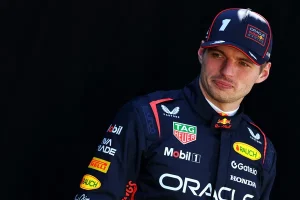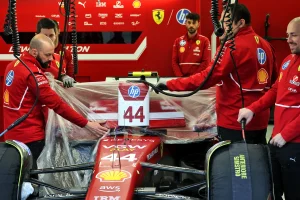JUST IN : McLaren Criticizes Harsh Penalty for Norris in Qatar GP…….Read more

McLaren Criticizes Harsh Penalty for Norris in Qatar GP…….Read more
Norris Penalized for Ignoring Double Yellow Flags
Lando Norris received one of Formula 1’s harshest penalties during the Qatar Grand Prix—a 10-second stop-go sanction—for failing to slow under double waved yellow flags on lap 30. This penalty required Norris to enter the pits within three laps and remain stationary in his pit box for 10 seconds, a significant setback in the race.
McLaren Questions Severity of the Sanction
McLaren’s team principal, Andrea Stella, expressed strong disapproval of the decision, calling it disproportionate to the offense. “In the application of the penalty, I think we have lost any sense of proportion and any sense of specificity,” Stella remarked in an interview with Sky Sports.
Stella highlighted that the yellow flags were withdrawn soon after they were displayed, even though the hazard—a piece of debris on the start/finish straight—had not been cleared. “Can we look specifically at the infringement, the level of danger, and the fact the yellow flag was removed?” he asked. “Instead, it feels like the rule book, probably full of dust, was applied without a critical approach.”
Consistency with Precedent
Despite McLaren’s frustrations, the penalty aligns with past rulings in similar situations. Over the past 14 seasons, only three cases of drivers failing to slow for double waved yellow flags during a race have occurred, and each resulted in similarly severe penalties.
A Call for Reform
Stella urged the FIA to adopt a more nuanced approach when assessing penalties, considering the specifics of each situation rather than strictly adhering to the rulebook. “There’s an opportunity to do better,” he suggested, emphasizing the importance of proportionality and context in stewarding decisions.
A Contentious Debate
The penalty reignited discussions around consistency and fairness in F1 rule enforcement. While the FIA’s decision followed established precedent, McLaren’s criticism highlights ongoing tensions between teams and stewards over interpreting and applying regulations.





